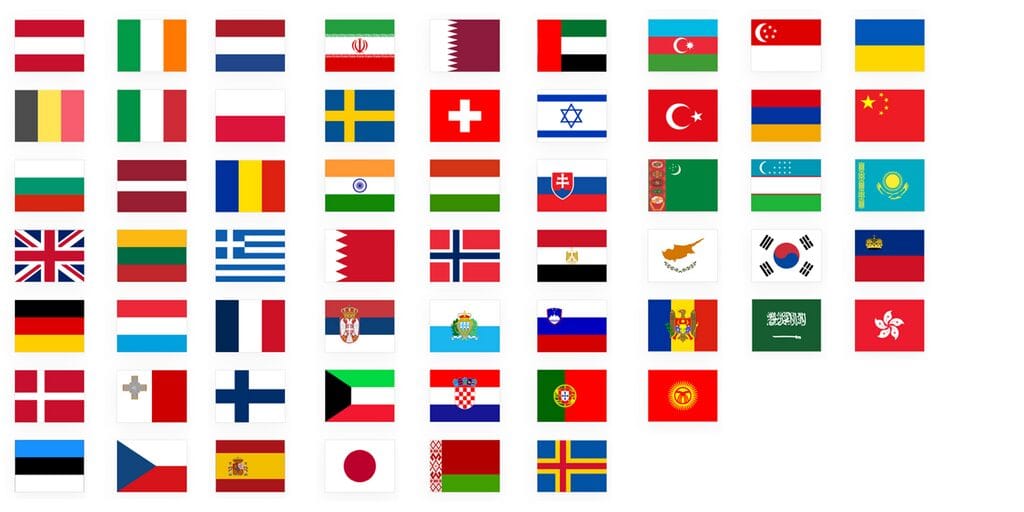An agreement concluded between Great Britain and the Swiss Canton of Vaudin in 1872 is commonly cited as the first ever double tax treaty, though it is possible to find treaties of a similar nature even earlier (Saint Petersburg Commercial Treaty of 31 December 1786 between Russia and France, anyone?). Whatever the case, they’re here now, with more than 3,000 conventions saving businesses and individuals around the world billions of dollars every year.
Georgia is no exception, with many such agreements and generally low taxes making it attractive to international investors and laymen alike.
Tax Treaties in a nutshell
A double taxation avoidance treaty (DTA), double tax treaty (DTT), or just tax treaty is a special agreement between two or more countries that protects an individual or organization from having to pay the same tax in the country where the income was received and in the country of residence (if they’re different).
A DTT applies to individuals and companies for different types of capital and profits, from personal and corporate income taxes to dividends, interest, royalties, pensions, and real estate. International double taxation is mitigated by means of two methods:
- The exemption method, providing exemption in full if the relevant tax has already been paid in one of the countries
- The credit method, where the tax paid in one country is taken into account to reduce the total tax burden
Example: A German national comes to Georgia and starts receiving income here and paying tax in Germany (which is interested in its citizens’ global income) and in Georgia. But guess what: A tax agreement exists between the countries that means this does not have to be the case.
The benefit is obvious. When applied correctly, these agreements can save you money and maximize income, be it from work, investment, or your activity as an entrepreneur.
Countries with which Georgia has concluded tax agreements
According to the Ministry of Finance, as of 2025 Georgia had signed 58 treaties, with another four in the process of being negotiated. There are currently tax treaties in place with every member of the EU and most of the former CIS, as well as the UK, Turkey, Qatar, UAE, China and Hong Kong, South Korea, Japan, and India (see image below for a full list of countries).
For U.S. citizens, Georgia is something of a legal offshore. The only existing tax agreement of any kind is the 1976 treaty between the United States and the USSR, which was never formally terminated. And here’s the kicker: the U.S. tax authorities continue to honor it but Georgia doesn’t. Anyway, it can be applied to reduce a tax burden in the U.S. if you’ve paid taxes in Georgia. Then there’s the FEIE (foreign earned income exclusion), which exempts expats from paying tax in the U.S. on up to USD 130,000 of income received abroad.

Ways tax treaties can vary
It is important to understand that each treaty is a unique, often voluminous document that may contain signification variations on taxation within the same DTA (to say nothing of DTAs for different countries).
At the same time, the agreements Georgia is party to are based on the model convention of the OECD, the Organization for Economic Cooperation and Development, meaning they share some common features:
- Income from the sale or rental of real estate is taxed in the country where the real estate is located
- Dividends are taxed in the country whence the payment
- Artists and athletes are taxed in the country where they actually perform
- Pensions are taxed in the country that pays them
- Other types of income are more complicated…
Individuals and residency
One of the purposes of a tax treaty is to clarify which country receives tax on which type of income. Tax residency plays a decisive role.
Generally speaking, 183 days in a 12-month period will make you a tax resident. Otherwise put, if you stay in Georgia for six months, you automatically become a tax resident. It is possible to become a resident for tax purposes even more quickly if you possess adequate means.
Having said that, it is possible to be a tax resident of two countries at the same time. Perhaps, for example, you become a resident of Georgia but fail to alert the revenue service in your home country. In this case, some tax treaties look to the Center of Vital Interests (CVI) to resolve the conundrum.
Your CVI is where you have your strongest connection (real estate, permanent residence, nationality, etc.). Still, the burden of proof falls directly on you, and it would seem pretty obvious it’s in your interest to have your CVI where taxes are lower.
Example: A programmer from Belarus works for a Belarusian company remotely in Georgia for a whole year and becomes a tax resident. According to the tax treaty that exists, tax is paid in Georgia, activating the exemption mechanism in Belarus.
In this case, it would be beneficial to register an IE with small business status in Georgia and pay tax of only 1% of turnover – 12% less than personal income tax in Belarus.
Businesses and permanent establishment
If you’re a foreign legal entity, your equivalent to residency is the concept of permanent establishment, something you can obtain after a certain period of time has elapsed after commencing operations in that country in an office, branch, factory, workshop, or place of development of natural resources. Depending on the treaty, the time period can range from three months (treaty with India) to a year (UK).
Having obtained the relevant status, a company is obliged to pay tax on the profits of a particular branch in another country under the laws of that country. In the absence of a recognized representative office, all taxes are paid in the country where the company is registered.
If a foreign national simply opens a new business in Georgia, the business pays taxes as required by national legislation. There are no taxes on the enterprise in the foreign national’s home country (it was opened here – there’s no connection), and existing tax treaties are irrelevant.
Georgian agreements and you
- Freelancers who move to Georgia but work for clients located somewhere else can become a tax resident here, register an IE, and pay income tax at a very favorable rate of 1% of turnover, reducing the corresponding tax in the country of citizenship (or client) or eliminating it completely, depending on the treaty.
- Private investors who invest in Georgian companies and receive dividends or nominal yield will be taxed only in the place of registration of the JSC (under most treaties with Georgia) at the basic rate of 10%, with rates of 0 or 5% for major investors.
- (Tax treaties provide for) foreign nationals purchasing real estate to be taxed on income from the property at the place of its actual location. In Georgia, there are no fees when buying an apartment, rental income on property included in the register of landlords is taxed at a rate of 5%, and there is no tax on the sale if you have owned the property for two years or more. Read about real estate prices in Georgia here.
- For foreign nationals moving to Batumi or Tbilisi for retirement, tax on government contributions is withheld only in the country of payment, so all you need to worry about is the gentler climate and low prices.
- Foreign companies that want to enter the Georgian market (or international market through a branch in Georgia) can obtain the desired permanent establishment to be subject to corporate tax according to the Estonian model, which is paid to the budget only when profits are distributed.
- Georgian startups (including those founded by a foreign national) that work with international contractors may reduce tax to 0% at the source (instead of the default 10%).
Some of the finer points affecting DTTs
Just because a treaty exists between Georgia and a country does not mean that it automatically applies. To ensure you avoid double taxation, you must regularly submit declarations to the authorities in both countries, prove your tax residency, and generally take the bull by the horns.
And most importantly, look at the actual treaty before moving to Georgia to make sure there are no unexpected surprises. The provisions of some tax treaties may well deviate from the standards described in this article, and the treaties themselves are periodically updated. Be meticulous when having recourse to the treaty so that the tax authorities have no reason to suspect you of tax evasion. To do so, you may wish to avail yourself of the help of a lawyer.
Edit the cPB Services can help you understand tax treaties and the finer points of Georgian and international legislation. Sign up for a free consultation or leave a request through the form below to let us look over your case and ensure you’ve got all your bases covered.ontent of the Infobox.
